IoT
Latest
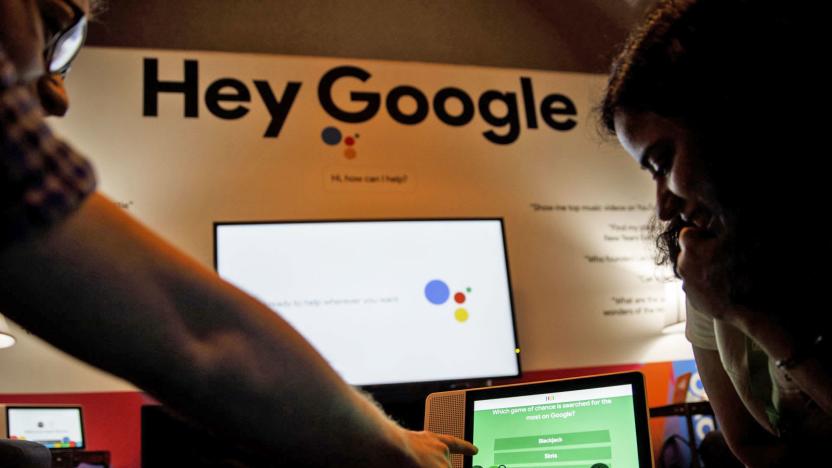
Google admits that Android Things are only smart speakers and displays
When we first heard about Google's Android Things platform in 2016 (and even earlier when it was Project Brillo) the idea was that it could bring additional intelligent capabilities to all kinds of electronics. However, in the years since AI helpers like Google Assistant have moved control and smarts to the cloud, while the smartest devices in your home are still just... speakers and displays. Now Google has announced that it's "refocusing" Android Things on those two types of devices. Over the past year, Google has worked closely with partners to create consumer products powered by Android Things with the Google Assistant built-in. Given the successes we have seen with our partners in smart speakers and smart displays, we are refocusing Android Things as a platform for OEM partners to build devices in those categories moving forward. Therefore, support for production System on Modules (SoMs) based on NXP, Qualcomm, and MediaTek hardware will not be made available through the public developer platform at this time.

Battery-free sensor tag gathers energy from radio frequencies
Sensors play a crucial role in the Internet of Things, but there's one glaring limitation: they need a battery or some other conspicuous power source to run. Soon, however, they might only have to pluck energy from the air. Wiliot has shown off a Bluetooth sensor tag that gathers energy from ambient radio frequencies, whether it's Bluetooth, cellular or WiFi. All the ARM-based chip needs is a basic antenna printed on paper or plastic -- after that, it can transmit info like weight and temperature without any kind of battery involved.

So, you got an IoT device for the holidays
IoT devices are at once a grotesquerie for the security- and privacy-conscious, and a delicious, convenient poison. And chances are pretty good you got one as a holiday gift. You might say we're in the heyday of IoT — though a significant number of infosec professionals might be more inclined to call it the apex of the Internet of Shit. They have a point. Even just a glance at recent headlines is enough to convince anyone that the so-called smartness of these products is a bit lacking.

Bees with tiny sensor backpacks could help farmers track crops
Farmers can use drones to monitor their fields, but they have their limits when they can rarely fly for more than 20 to 30 minutes at a time. University of Washington researchers might have a smarter way: recruit some insect friends. They've developed sensor backpacks that are light enough (about 0.0035 ounces) and efficient enough to ride on a bumblebee, but capable enough to collect data for seven hours at a time over relatively long distances. You wouldn't have to replace packs very often, either, as they could just fly into their hives to wirelessly recharge and transmit data.
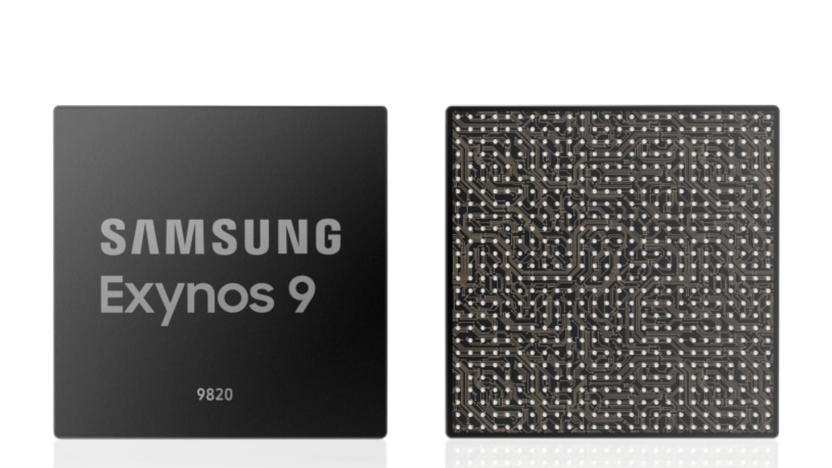
Samsung's new phone processor has hardware for on-device AI
Samsung has announced its latest system-on-chip (SoC), the Exynos 9 Series 9820 processor, geared specifically towards managing on-device artificial intelligence applications. Unlike its predecessors, this processor contains an AI-accelerator, or NPU, that means AI-related processing can be carried out directly on the device, rather than sending the task to a server. This adds up to seven times faster performance.

Intel's 'neural network on a stick' brings AI training to you
Ahead of its first AI developers conference in Beijing, Intel has announced it's making the process of imparting intelligence into smart home gadgets and other network edge devices faster and easier thanks to the company's latest invention: the Neural Compute Stick 2.
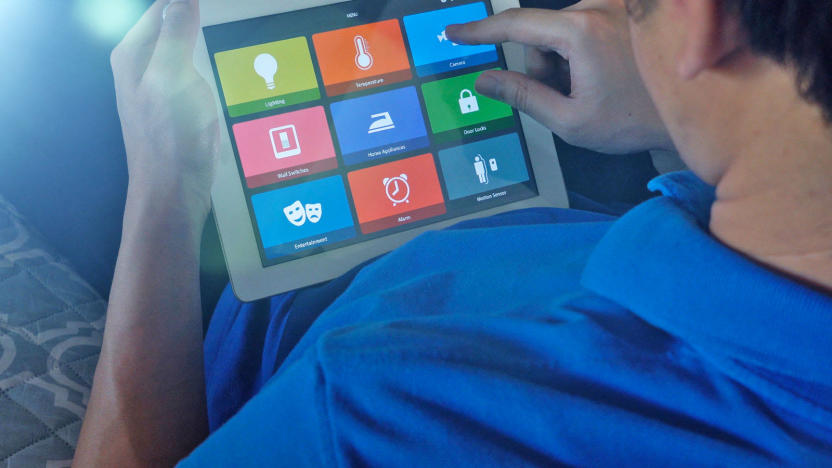
Amazon fixes security flaws allowing smart home hijacks
Some smart home device owners may have dodged a bullet. Amazon recently patched 13 security flaws in an operating system for the Internet of Things, FreeRTOS, as well as Amazon Web Services connection modules. The holes let intruders crash devices, leak the contents of their memory and remotely run code, effectively giving attackers full control. The flaws might have been far-reaching if they'd gone unfixed -- both FreeRTOS and its safety-oriented counterpart SafeRTOS are used in a wide range of devices inside and outside the home, including cars, aircraft and medical gear.

Google's smart home ecosystem has arrived
The building blocks of the "smart home" -- connected lights, plugs and other gadgets -- have been around for years. But they were strung together by a variety of confusing protocols. It wasn't until Amazon's Echo and its accompanying Alexa virtual assistant came along that the smart home started to make sense. We didn't need just smart devices; we also needed voice controls and seamless interoperability between devices. Basically, we needed a proper smart home ecosystem.
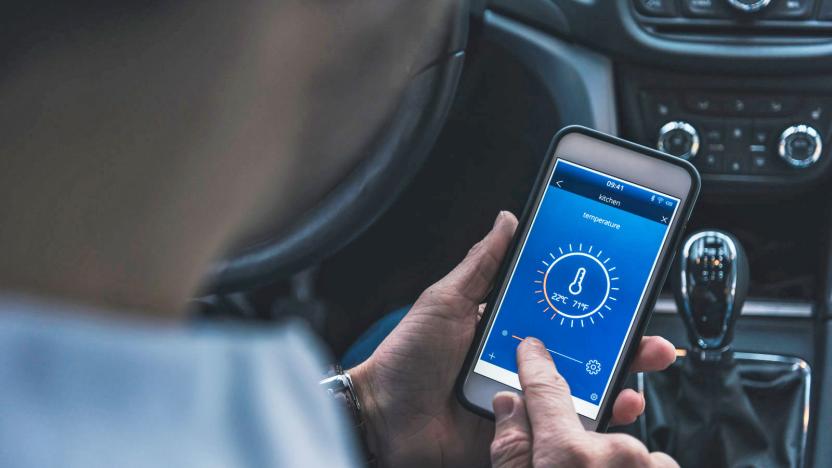
California's new laws bolster security for connected devices
California just raised the baseline for security in the Internet of Things... to a degree. Governor Jerry Brown has signed very similar Assembly and Senate bills that require hardware makers to include "reasonable" security measures for connected devices. All gadgets will require at least some kind of protection against unauthorized data access. If they connect to the internet, they'll require either a preset password "unique to each device manufactured" or else the ability to generate a new authentication method (such as a custom password) on initial setup. You shouldn't see hackers compromise legions of security cameras or routers simply because they're using the same default password.
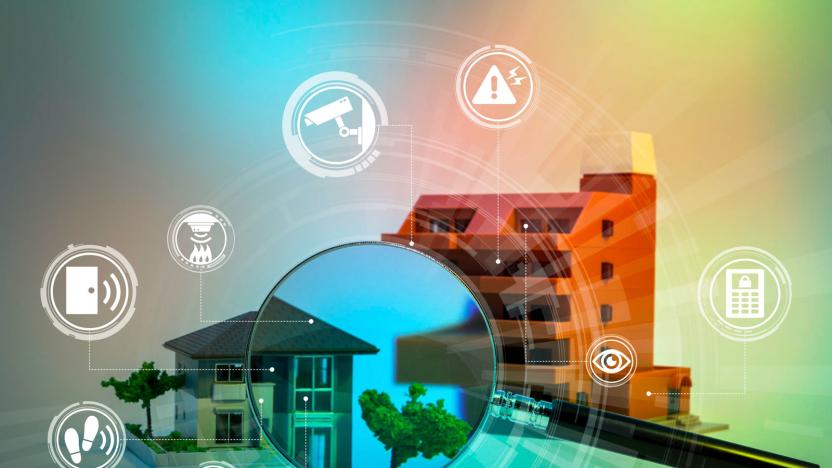
How to better secure your smart home
With the advent of gadgets like doorbell cameras, smart kitchen appliances and data-logging sensors that track your sleep, the smart home now extends to even the most intimate areas of the household. It's great for general convenience, like knowing whether you left the heater on or locked the door behind you, but these connected devices also bring with them a host of security concerns.

Samsung patches multiple SmartThings Hub security flaws
Samsung's SmartThings hub suffered from 20 vulnerabilities that could have allowed attackers to control the internet-of-things devices connected to it. Thankfully, security intelligence firm Cisco Talos discovered the flaws and worked with the Korean company to resolve the issues, allowing Samsung to release a firmware update that patches them for all affected customers. Talos admits in its report that some of the vulnerabilities would've been difficult to exploit, but attackers can combine several at once to launch a "significant attack on the device."
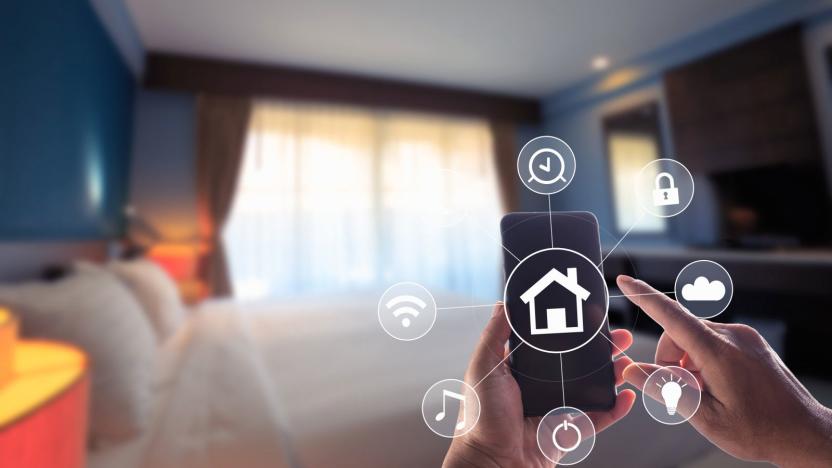
For victims of smart home abuse, there's no easy out
The New York Times recently published a report that revealed a disturbing trend of harassment and domestic abuse via internet-connected devices. In addition to using them to stalk and monitor their victims, abusers are also doing things like changing door-lock codes, turning lights on and off and boosting the thermostat to unbearable heat. In short, making their victims miserable.

Google's IoT platform Android Things is open to all developers
To help folks build software to make their hardware products play nice with the Internet of Things, Google announced at the end of 2016 it would create a toolkit called Android Things. It was released in preview to select developers, but today it's available to all of them.

Qualcomm designed new chipsets just for IoT gadgets
Instead of continuing to repurpose existing processors for smart home devices, Qualcomm has unveiled two new chipsets built specifically for IoT gadgets. The QCS605 and QCS603 are 10nm system-on-chips (SoCs) that will power things like 360-degree cameras, robot vacuums and smart displays from companies like Ricoh Theta and Kedacom. Qualcomm also launched a Vision Intelligence Platform today that provides frameworks like the company's AI Engine, and the Snapdragon Neural Processing Engine (NPE) to enhance on-device machine learning. It'll also offer SDKs for camera processing and computer vision so that companies who buy these processors can more easily create applications for their products.
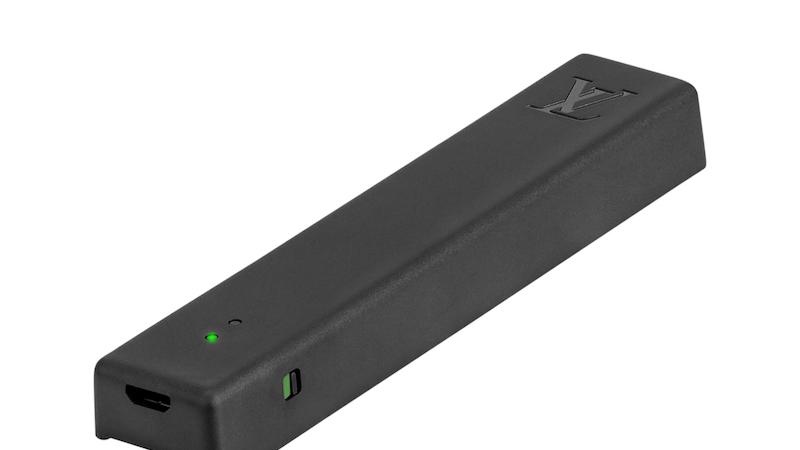
Louis Vuitton now sells a pricey tracker for your designer luggage
Earlier this year, an FCC filing suggested Louis Vuitton was working on a luggage tracker that could pair with some of its bags. That device is now available. The Louis Vuitton Echo, as it's called, pairs with the luxury designer's Horizon luggage line and when inserted inside a dedicated elastic band, it can detect when the bag is opened. It's also powered by Sigfox's Monarch service, which lets devices like the Echo transmit data through a range of radio frequencies in airports around the world, meaning the tracker will work internationally.

BlackBerry's post-phone future includes IoT security
BlackBerry hasn't been shy about shifting its focus away from hardware and toward technologies you can find inside others' devices, such as self-driving cars and secure comms. If you need any further proof, though, you just got it: BlackBerry has struck a deal with Swiss electronics maker Punkt to secure an upcoming range of Internet of Things devices. In theory, the embedded security tech will ensure they can connect to your home or office network without creating glaring vulnerabilities. Details of the devices themselves weren't mentioned, but it's safe to presume they'll be more advanced than the power accessories and cordless phones that represent Punkt's current lineup.

LG puts Google Assistant in its own touchscreen-equipped speaker
Google Assistant's fingerprints are all over the CES 2018 show floor, but it's especially easy to see on a few new Android Things-powered devices. This LG ThinQ Google Assistant Touch Screen Speaker is one of them, and like Lenovo's Smart Display, it's built on a Qualcomm Home Hub Platform.

Cubinote prints colorful sticky notes from your smartphone
Even with all the reminder and to-do apps out there, plenty of people are still fond of physical sticky notes. And if you don't want to pick one over the other, there's a startup trying to bring the best of both worlds together. Cubinote is a Bluetooth- and WiFi-enabled printer that pairs with an iOS or Android app to make sticky notes on the fly. The company says the product could come in handy if you, say, want to leave it at your home office and send reminders or other random notes to it from your workplace. Or if your parents don't live in the same city as you and you want to send them messages every now and then.

Arable's Mark crop sensors give farmers a data-driven edge
I've never actually set foot on a farm, but I'm inexplicably still drawn to agriculture startups -- after all, farming is one of the world's oldest professions, and nothing is quite as helpful as pure hard data. Fortunately, that's exactly what Arable specializes in: It built a crop sensor that's absolutely packed with instruments to give farmers greater insight into how their fields are doing. That's great for business, sure, but it also helps ensure that quality produce eventually ends up on our plates.

Wi-Fiber’s streetlights are an easy way to make cities smart
The difference between the technology in our pockets and that lining our streets is growing ever more pronounced, and that's a problem. It's one of the reasons that smart city technology is going to become an increasingly visible part of the world over the next few years. Communities need to catch up, and companies such as Wi-Fiber are hoping that offering a way to retrofit new equipment into existing infrastructure is the solution.














